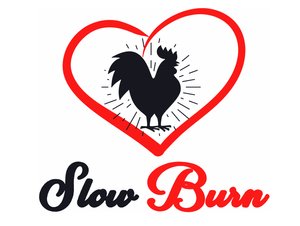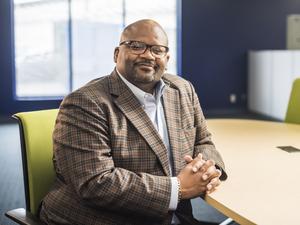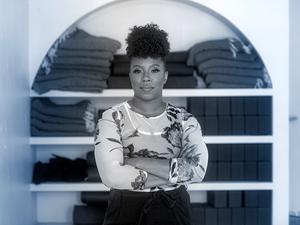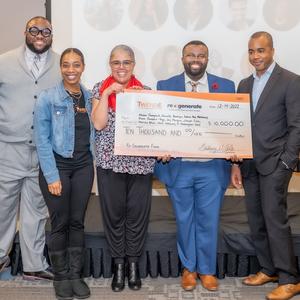
Danielle McGee is a matchmaker.
But instead of helping people find love, she’s connecting entrepreneurs to cash.
Last year, McGee’s Boomin to the Bank program provided free financial education to 100 Black business owners, the Tennessee State University professor said, and her organization plans to double that number in 2023.
The goal of the program — which is funded by corporations and government agencies, including Cummins Inc. — is to prepare Black entrepreneurs to apply for bank loans that can grow their businesses and provide financial tools for their continued success, McGee said. Boomin to the Bank is an offshoot of Black Business Boom, which McGee founded to support Black entrepreneurship and reduce economic inequality.
“[Through Boomin to the Bank] we really want to connect [Black business owners] to money,” said McGee, who has a marketing background. “Black entrepreneurship is the key to start closing the racial wealth gap. If we can support Black-owned businesses and them accessing the capital they need to be able to buy a property for their businesses, or invest in marketing or whatever else they need to scale their business, that is adding jobs and adding money to the economy.”
Securing the necessary funding to start or grow a business has been a consistent barrier for Black entrepreneurs in Nashville and around the country. Since 2008, the annual number of Small Business Administration loans to Black businesses has decreased 84%, according to a 2020 examination by The Business Journals of lending data for the agency’s flagship 7(a) program.
The decrease came despite 48% growth in the economy, a 101% increase in bank deposits and an 82% jump in commercial loans. The decline also corresponded with a 53% decline in all 7(a) loans awarded.
Compounding the problem, McGee said, is that while some banks have capital designated for making loans to Black businesses, they often have trouble finding applicants.
“The mindset of Black people being taught that we shouldn’t borrow money … that’s really where is starts,” McGee said. “Some of us are prepared to access capital but we don’t know what to do with that money. We don’t know how to use it to actually grow our business and we look at debt as a bad thing. We don’t look at it as leveraging someone else’s money to grow our business.”
Changing that mindset is where Boomin to the Bank begins, McGee said. The eight-week program focuses on five “pillars” of success: resources, community, mentorship, education and funding.
Business owners are educated on bookkeeping, types of funding, personal credit, what banks look at when considering loans, business strategies, taxes and retirement planning, McGee said. The entrepreneurs also receive financial tools, such as free bookkeeping for three months.
“It’s about the complete financial picture for a business owner,” McGee said. “We lean heavily into the things banks are looking for to approve you for a loan and how to fix, improve or start to do whatever those things are you need to get approved for a loan with a bank. We also take a wholistic approach to their business and their personal finances because a lot of folks just haven’t been taught these things.”
McGee said five of the early-stage companies were able to receive microloans after going through the program last year. Because lenders often require two years of tax returns to approve loans, she expects that number to increase with time.
Boomin to the Bank works with several lenders — including Nashville-based Studio Bank, which has programs to fund Black entrepreneurs, such as The Bridge Resource Partnership Fund — but McGee is working to turn Boomin to the Bank into a microlender to make loans directly to businesses in the program. She is currently researching lending software and looking for more capital, but hopes to begin making loans in April.
Boomin to the Bank’s coaches are located in Nashville, Memphis, Austin and Los Angeles. The orientations are in-person but most classes are held virtually.
McGee knows first-hand the struggles many Black entrepreneurs face, which is why she has dedicated her career to helping them succeed. In 2012, she started her own business, opening a spa in Chicago — but the experience was anything but relaxing.
“One of the most difficult periods in my life was stepping out on faith and becoming a full-time entrepreneur,” McGee said. “It led to me filing bankruptcy in 2015. I went from being bankrupt to now running a seven-figure business in seven years, but there were so many bad decisions I made as it relates to money. … If I can teach someone else to not make the same mistakes I made with money and if I can help someone avoid the issues I had with growing my business, then I feel like that’s what I was placed on this earth to do.”
Applications for the program are not currently open, but McGee expects the next cohort to begin in the second quarter.








